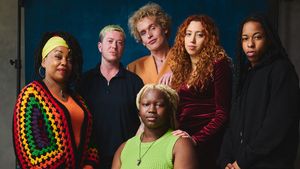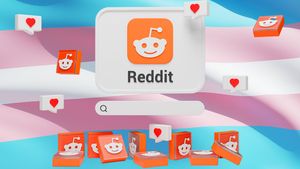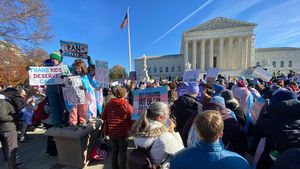Treatment GuideJust DiagnosedSex & DatingAfrican AmericanStigmaAsk the HIV DocPrEP En EspañolNewsVoicesPrint IssueVideoOut 100
CONTACTCAREER OPPORTUNITIESADVERTISE WITH USPRIVACY POLICYPRIVACY PREFERENCESTERMS OF USELEGAL NOTICE
© 2025 Pride Publishing Inc.
All Rights reserved
All Rights reserved
Scroll To Top
By continuing to use our site, you agree to our Privacy Policy and Terms of Use.
If you are HIV-positve and you smoke cigarettes, you are putting extra stress on your body. Smoking weakens your immune system, making it harder to fight off deadly infections like fungal thrush, oral hairy leukoplakia (caused by the Epstein-Barre virus), as well as various types of pneumonia. Nicotine, a chemical found in tobacco leaves, is an addictive substance. In addition to nicotine, every single cigarette contains an estimated 4,800 harmful chemicals, including 11 proved to cause cancer in humans. Some of the chemicals found in cigarettes are > acetone, found in nail-polish remover; > ammonia, a toxic household cleaner; > formaldehyde, which is used to embalm bodies; > arsenic, used in rat poison; > tar, used in paving roads; > carbon monoxide, a poisonous gas released in car exhaust fumes; and > cadmium, the main ingredient in battery acid. Effects of Smoking Many of the adverse health effects caused by smoking are aggravated by HIV. Smoking increases your risk of heart disease, a heart attack, or a stroke. Some anti-HIV medications can raise the amount of fats and cholesterol in your blood, increasing the chances of developing these problems. People with HIV also may get sores and infections like thrush or herpes inside the mouth and on the tongue and lips. Smoking aggravates these situations, making dental problems, gum disease and mouth cancer more common. In addition, people with HIV who smoke get lung cancer, emphysema, chronic obstructive pulmonary disease, pneumonia, and other lung infections more often than smokers who do not have HIV. Finally, smoking weakens your immune system, undermining the effects of your HIV medications. Men and Smoking Men who have sex with men are disproportionately more likely to smoke cigarettes than their heterosexual counterparts. The rate is an estimated 55.9% higher among MSM. The reasons for this are varied and include anxiety stemming from homophobia and discrimination, increased rates of alcohol use and other behaviors related to smoking, social norms that accept smoking and direct advertising to gay communities by tobacco companies. Tips on Quitting Quitting smoking has many health benefits. Twelve hours after quitting, carbon monoxide levels in your body drop to normal. One year after quitting, your added risk of heart disease is half that of a smoker's. And five years after quitting, your risk of a stroke is now similar to those who have never smoked. How to do it? >Set a quit date. Get rid of all tobacco materials around you, and tell your family and friends to please not smoke around you. >Ask for help. You can also seek counseling and talk to your medical provider about nicotine replacement therapy products. >Keep on going. Once you have quit smoking, stay busy -- exercise, clean your home. >Build healthy habits. Drink lots of water and change the habits that used to make you want to smoke. >If at first you don't succeed... If you relapse, think about what caused you to light up again, and try to stay away from those situations. Do not give up; try again! Resources to Help The California Smokers Helpline, (800) NO-BUTTS, is a free statewide telephone service that helps people quit smoking tobacco. The help line offers six free one-on-one cessation services over the phone with a trained counselor. Services are available in English, (800) 662-8887; Spanish, (800) 456-6386; and other languages. You can also visit the California Smokers Helpline website for additional information.
From our Sponsors
Most Popular
Lexi Love comes out as HIV+ after Trump deletes federal resources
January 23 2025 11:23 AM
Grindr is reminding us why jockstraps are so sexy and iconic
May 02 2025 5:36 PM
BREAKING NEWS: Trump admin moves to end federal HIV prevention programs
March 18 2025 6:10 PM
Trump's orders prompt CDC to erase HIV resources
January 31 2025 5:29 PM
Celebrating Black History Month with our annual African American issue
February 01 2025 3:28 PM
Tyler TerMeer vows to continue to fight for health care for all
January 28 2025 3:00 PM
Discover the power of Wellness in your life
March 26 2025 12:41 PM
Plus: Featured Video
Latest Stories
Dancer. Healer. Survivor. DéShaun Armbrister is all of the above
July 02 2025 8:23 PM
BREAKING: Supreme Court rules to save free access to preventive care, including PrEP
June 27 2025 10:32 AM
1985: the year the AIDS crisis finally broke through the silence
June 26 2025 11:24 AM
VIDEO: A man living with HIV discusses his journey to fatherhood
June 10 2025 4:58 PM
Trump admin guts $258 million in funding for HIV vaccine research
June 03 2025 3:47 PM
HRC holds 'die-in' to protest Trump health care cuts
April 28 2025 2:11 PM
Two right-wing Supreme Court justices signal they may uphold access to PrEP and more
April 21 2025 4:10 PM
500,000 Children at Risk: PEPFAR Funding Crisis
April 08 2025 3:51 PM
Broadway's best raise over $1 million for LGBTQ+ and HIV causes
April 03 2025 7:15 PM
The Talk Season 5 premieres this spring with HIV guidance for the newly diagnosed
March 26 2025 1:00 PM
Season 4 of The Switch on resilience & radical self-love returns this spring
March 26 2025 12:20 PM
Jess King is here to help you live your happiest, healthiest life yet
March 24 2025 4:35 PM
Gerald Garth is keeping people of color happy and healthy through trying times
March 11 2025 3:38 PM
Plus nominated for 2025 GLAAD Media Award
January 22 2025 12:42 PM
A camp for HIV-positive kids is for sale. Here's why its founder is celebrating
January 02 2025 12:21 PM
This long-term HIV survivor says testosterone therapy helped save his life.
December 16 2024 8:00 PM
'RuPaul's Drag Race' star Trinity K Bonet quietly comes out trans
December 15 2024 6:27 PM
Ricky Martin delivers showstopping performance for 2024 World AIDS Day
December 05 2024 12:08 PM
AIDS Memorial Quilt displayed at White House for the first time
December 02 2024 1:21 PM













































































